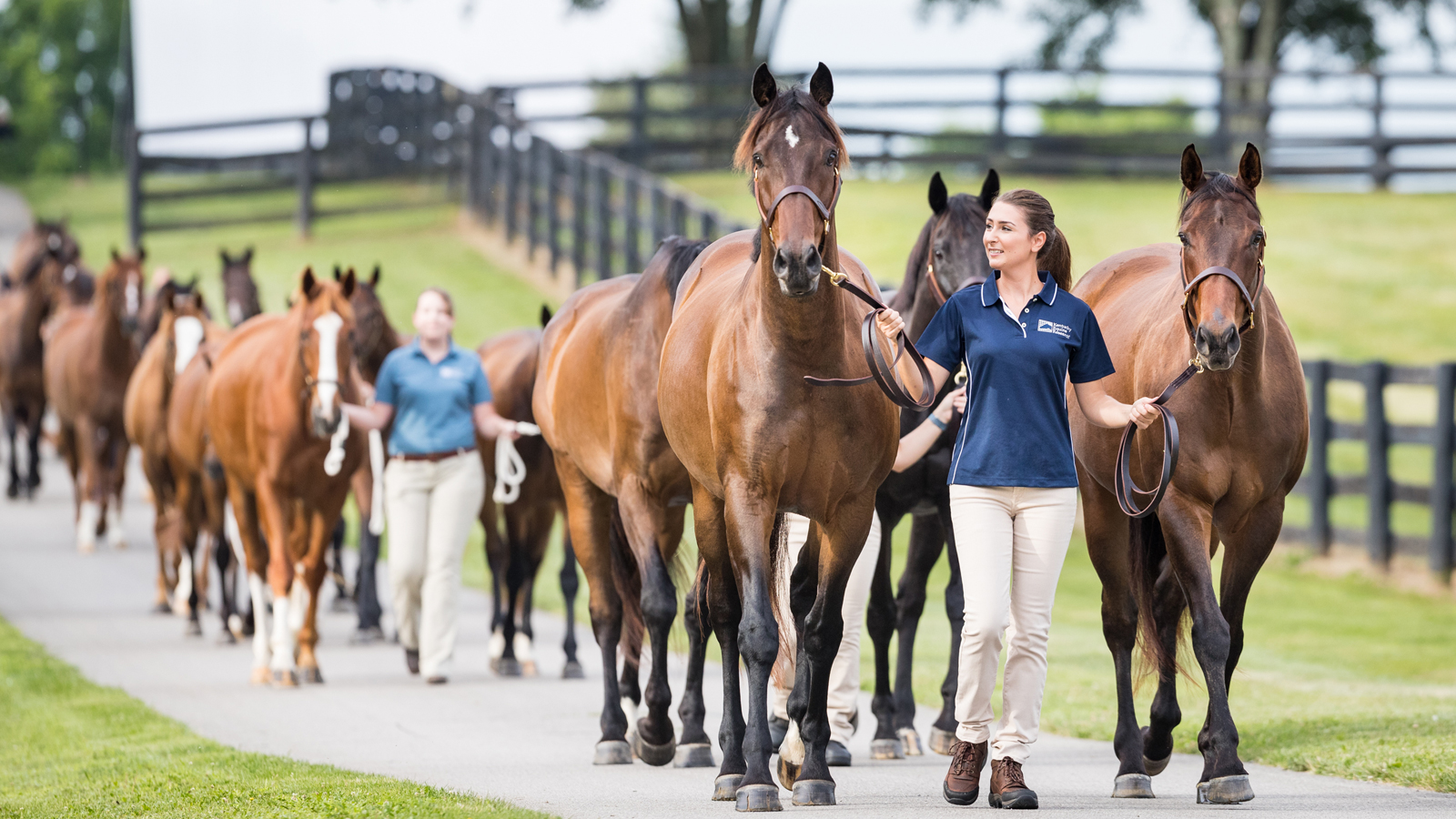LEADING THE WAY
IN HINDGUT HEALTH
KER began investigating the effects of changes to hindgut conditions in the early 2000s. Hindgut acidosis is a common problem in horses consuming large quantities of either grain or fructan-rich forages. This dietary regimen may lead to shifts in hindgut acidity when a portion of the grain starch is not digested in the small intestine. Passing into the cecum and colon, the starch is rapidly fermented, changing the environment of the hindgut. Horses suffering from this condition may develop anorexia, colic, or laminitis, and may develop behaviours like wood chewing, weaving, and stall walking.
Researchers found they were able to help horses maintain more consistent hindgut pH through use of a time-released balancer, available as EquiShure. Horse owners around the world have used EquiShure with great success.
“I believe that a horse’s condition can only be as good as its digestive system,” says Olympic eventer Amanda Ross. “If the horse has issues digesting feed, it doesn’t matter how good the feed ration is — the horse cannot utilise it effectively! I use EquiShure on all my competition team, and as a result, have actually reduced the amount of feed the horses require to look and feel amazing! I’ve seen long-term digestive upsets resolved within a week of feeding EquiShure, and I feel it’s essential considering the workload, travel, and competition stress my horses are under. They all feel super, eat well, and perform well as a result.”
Learn more about the research supporting EquiShure at ker.com.
More than 30 years ago, Kentucky Equine Research was founded by equine nutritionist Joe Pagan, PhD, with one goal in mind: to put innovations in equine nutrition and exercise physiology in the hands of horse owners and feed manufacturers.
From the beginning, Joe Pagan envisioned worldwide reach in achieving this goal. Soon after the company opened its doors, it launched a satellite office in Australia, which continues to serve thriving racehorse and performance-horse markets. Further expansion occurred during the intervening years, and Kentucky Equine Research now works with feed manufacturers on six continents. The company is a global leader in many facets of equine nutrition.

The equine treadmill is regularly used as part of research programs
AT THE HEART: RESEARCH
As the name of the company suggests, the cornerstone of Kentucky Equine Research is its in-house exploration of nutrition and exercise physiology. Year-round trials form the basis for development of novel feed ingredients and nutritional supplements. The trials are conducted at two facilities in the United States, the flagship farm in Kentucky and the Thoroughbred Training Centre in Florida.
Different research trials have been conducted at KER over the years. Digestibility trials determine how horses derive nutrients from different feedstuffs and how nutrients interact with one another to affect digestibility. Feed preference trials measure palatability among different feedstuffs and flavours. Exercise studies involve treadmill tests of various intensities, including sprint and endurance trials. More recent trials have focused on heart rate and lactate concentration as a measure of performance, as well as the effect of common medications such as furosemide and omeprazole on nutrient digestibility.
In addition to its own studies, KER collaborates with world-renowned scientists in academia to develop and patent products and diagnostic techniques that target specific problems in young, growing horses and equine athletes.
PREMIX QUALITY BOOST
Feed manufacturers worldwide rely on KER to provide expertise in formulation, ingredient technology, and quality control, in addition to technical support. At the centre of these relationships with feed manufacturers lies micronutrient premixes formulated by KER. Premixes represent the nutritional core of modern horse feeds, combining micronutrients (vitamins and minerals) in an easy-to-mix form suited for textured or pelleted formulas. By using a KER micronutrient premix, feed manufacturers can guarantee precision in fortification for all classes of horses.
TARGETED NUTRITION
KER responded to requests for more specialised products for horses with specific nutritional needs by developing a line of cutting-edge supplements. Designed to work in concert with partner feeds, these supplements are thoroughly researched and produced with a stringent level of quality control. Proprietary ingredients and unique solutions characterise KER Targeted Nutrition products.
One example of its ingenuity, KER recently released Nano-Q10, a source of the antioxidant coenzyme Q10, or ubiquinone, a compound known to protect against exercise-induced muscle damage. Nano-Q10 targets cells through nanotechnology, a delivery mechanism that boosts bioavailability. Research has shown that Nano-Q10 is three times more bioavailable than powdered crystalline ubiquinone.
With a rich history of research, product development, and consultation, KER has established itself as a leader in equine nutrition worldwide and will continue with the same commitment to excellence in the coming years. For more information, visit ker.com.
BEHIND THE SCENES AT
THE RESEARCH FARMS
Kentucky Equine Research applies the results of research trials to create innovative supplements, validate unique feed ingredients, and optimise partner feeds.
KER’s picturesque 150-acre research farm is located in the heart of Kentucky’s thoroughbred region. The farm offers a high-speed treadmill, six-horse walker, laboratory, and other equipment enabling staff to carry out a variety of research protocols. A dedicated Thoroughbred Training Centre in Ocala, Florida, enables researchers to observe the influence of nutritional changes in active racehorses in a typical training environment.
Around 40 horses are “on staff” contributing to research studies. These horses include eventers and racehorses in active training, as well as career research horses that gallop on the treadmill and participate in digestibility trials. Pensioners live out their days on the farm with occasional input on palatability and quality control studies.
The facilities are staffed by on-site equine nutritionists, experienced farm managers, and research interns. These interns participate in study design and protocol hands-on, as well as seeing the day-to-day operations of a large working farm. Visitors and tour groups are welcome by appointment. Learn more at ker.com.




